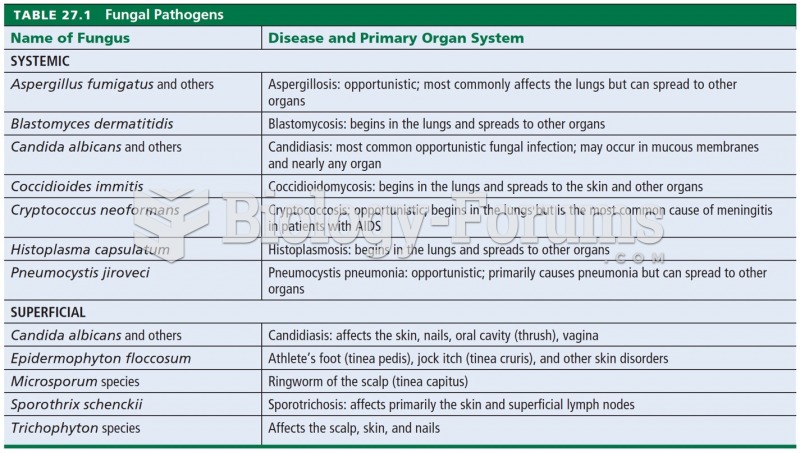|
|
|
If all the neurons in the human body were lined up, they would stretch more than 600 miles.
Though newer “smart” infusion pumps are increasingly becoming more sophisticated, they cannot prevent all programming and administration errors. Health care professionals that use smart infusion pumps must still practice the rights of medication administration and have other professionals double-check all high-risk infusions.
Carbamazepine can interfere with the results of home pregnancy tests. If you are taking carbamazepine, do not try to test for pregnancy at home.
Pubic lice (crabs) are usually spread through sexual contact. You cannot catch them by using a public toilet.
This year, an estimated 1.4 million Americans will have a new or recurrent heart attack.







